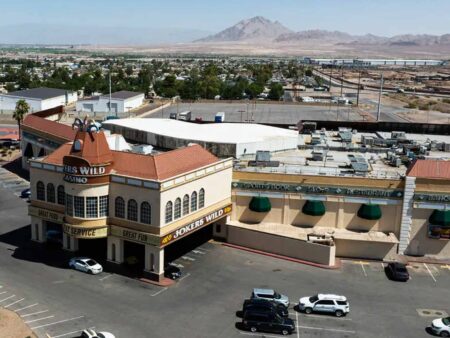
Casino resorts in Las Vegas and other U.S. destinations will no longer be able to charge hidden extra resort fees on top of the advertised room rates. That’s after a recent decision from the Federal Trade Commission (FTC).
The measure was certified along bipartisan political lines. It aims to stop hidden fees at hotels and casinos, but also in live events ticketing and other sectors. The average price of a Las Vegas room can sometimes be as much as double that advertised initially to the customer, depending on the operator’s resort fees.
The new rule will come into effect in 120 days, meaning after the U.S. presidency has been handed over to Donald Trump. Although not much with Trump is certain, the move has support from both parties and is unlikely to be a huge issue that catches his attention.
“People deserve to know up-front what they’re being asked to pay without worrying that they’ll later be saddled with mysterious fees that they haven’t budgeted for and can’t avoid,” said FTC Chair Lina Khan.
“The FTC’s rule will put an end to junk fees around live event tickets, hotels, and vacation rentals, saving Americans billions of dollars and millions of hours in wasted time.”
Resort Fees in the Firing Line
Resort fees were added to hotel pricing in Las Vegas in the late 80s. Ostensibly, they are to pay for many of the extra amenities offered at these resorts. But some casino hotels put useless or non-existent things under resort fees.
One of the main reasons they exist is to make up for the cash lost to third-party booking platforms, when they became more popular than booking directly through the casinos themselves.
For example, consider a room at the Bellagio in Las Vegas. On a weekday night, a standard king room at the MGM property would currently cost $229 to book in January 2025. However, Bellagio’s resort fee is $59 – which adds more than a quarter to additional costs.
The practice may irritate most, but for those travelling to Las Vegas on a budget, it is even more unpopular. Sometimes, deals will be advertised through third-party booking sites without the resort fee, and then on arrival, the guest may have to fork out as much as 50% of their entire cost’s stay. Which can be crippling if you’re on a tighter budget.
Hidden costs like these, especially hotel resort fees, have been on President Biden’s hit list since at least 2022. Now that he is the outgoing president, this change, which passed easily with cross party support, was a relatively simple one to tick off the list.
“Wherever big corporations try to sneak fees onto bills, my administration has been fighting on behalf of American families to ban them,” Biden wrote in a statement earlier this week.
“Today, the Federal Trade Commission is doing just that by banning hidden junk fees when you book a hotel or purchase event tickets. We all know the experience of encountering a hidden fee at the very last stage of checkout—these junk fees sneak onto your bill and companies end up making you pay more because they can.”
The FTC, meanwhile, has been against the practice for even longer, going back as far as 2012. But the Biden appointee Khan has not been afraid to push the move of banning it forward.
FTC and Trump
It is widely expected that Trump will fire Khan when he takes office from the incumbent, Joe Biden. Her aggressive attitude towards companies the FTC says are creating monopolies, including big tech, has created many enemies in corporate America. In gambling, the FTC butted heads with MGM Resorts International this year. The regulator began investigating MGM’s data protection systems after Khan was personally caught up in the 10-day cyberattack that disrupted all of its operations and cost the operator $100 million.
Interestingly, though, Trump’s Vice President, JD Vance, has been a consistent admirer of Khan’s approach at the FTC over the past four years. But most see it as unlikely that his previous opinions will stay Trump’s hand in this matter.
The new FTC head could, theoretically, reverse the law change on so-called junk fees. But seeing as they are unpopular with consumers and politicians across the aisle, it is considered unlikely they will do so.
Casinos in Las Vegas and elsewhere now have 120 days to comply with new rules and put all fees front and center. It is unclear if the fees will be eliminated completely, cut back, or simply incorporated into newly increased flat room rates.
David is an online casino expert who specializes in online slots and boasts over 10 years experience writing about iGaming. He has written for a wide range of notable publications, including eSports Insider and WordPlay Magazine.
David graduated Derby University with a BA Degree in English Literature and Creative Writing.



